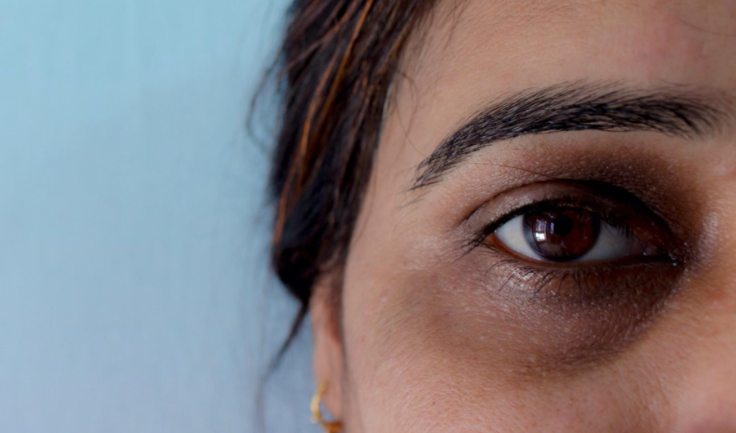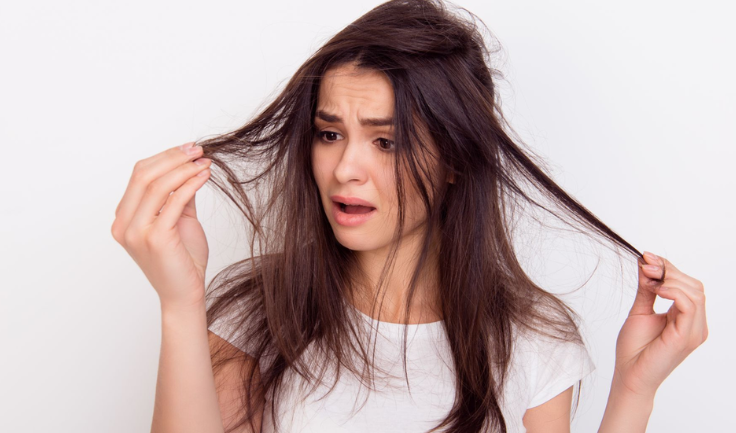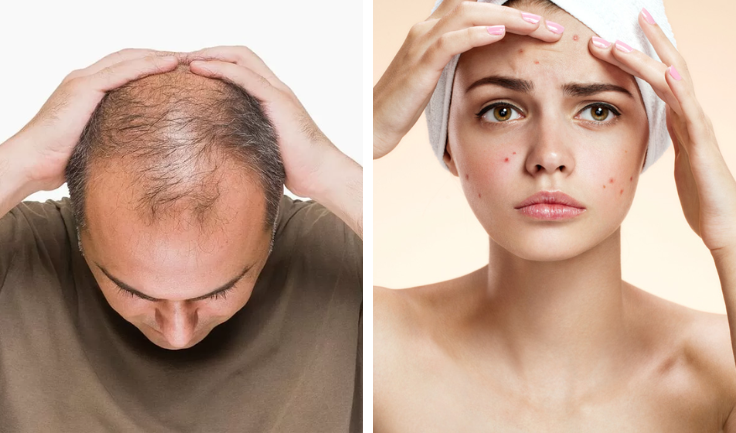How Stress Levels Contribute to Skin and Hair Problems
Stress is the result of challenges or threats that we have to encounter every day. However,
ongoing stress can be the cause of mental and physical tension. Prolonged stress affects many body functions,
including the skin and hair. Cortisol, our stress hormone, wreaks havoc on skin and hair when levels soar.
It accelerates ageing, triggers eczema and acne flare-ups, and even leads to hair thinning and loss. Stress
is embodied physically, but its impact can be mitigated. This guide explores bodily reactions and provides
effective coping strategies.
When under stress, our body activates the fight-or-flight response, preparing for quick action.
Stress triggers cortisol secretion from the adrenal glands, a hormone that regulates metabolism, immunity,
and the stress response. However, chronic stress can lead to high cortisol levels, disrupting the body’s
balance and potentially causing long-term, irreversible harm.
Stress wreaks havoc on our bodies, affecting every system. It floods us with cortisol, ramping up sebum production.
Clogged pores and acne soon follow. As collagen breaks down, wrinkles deepen and skin ages faster. Even our hair suffers,
its growth cycle thrown into disarray. The toll of prolonged tension etches onto our skin and scalp, a visible testament
to inner turmoil. It can cause telogen effluvium, leading to thinning or excessive shedding. Chronic activation of the
fight-or-flight response can worsen these conditions. So, stress management is vital for healthy skin and hair.
The Impact of Stress on Skin Health
1. Heightened Skin Sensitivity:
Our skin's shield crumbles under stress. Redness, inflammation and sensitivity follow as environmental
irritants seize their chance to invade our weakened defences. It can trigger eczema or dermatitis. Prolonged
stress makes the skin more reactive and more challenging to manage effectively.
2.Increased Acne Breakouts:
Stress triggers cortisol release, prompting excessive sebum production.
This oily secretion blocks pores, spawning acne. Simultaneously, stress-fuelled inflammation
aggravates outbreaks and hampers healing, marring the skin's complexion. The body's response to
tension thus initiates a cascade of events, ultimately compromising dermal health and appearance.
3. Premature Signs of Aging: Skin ages faster under constant pressure, depleting vital proteins.
Collagen and elastin are essential to supple, firm skin, but they dwindle. Oxidative stress mounts, etching wrinkles
and fine lines. A lacklustre complexion emerges, betraying the toll of unrelenting tension on our largest organ.
4. Slower Wound Healing: Stress weakens the immune system, impairing the skin's ability to repair damage.
Cuts, blemishes, and infections take longer to heal, leaving the skin vulnerable to scarring and prolonged recovery.
5. Worsened Chronic Skin Conditions: Stress triggers flare-ups of chronic skin conditions like psoriasis,
rosacea, and vitiligo. It amplifies symptoms such as itching, redness, and inflammation, creating a cycle where stress and
skin discomfort feed off each other.
The Impact of Stress on Hair Health
Hair Loss (Telogen Effluvium):
Hair follicles jolted by stress enter an untimely resting phase, a condition known as telogen effluvium.
This triggers a brief but significant shedding, resulting in widespread thinning as hair prematurely falls out.
Stressful events disrupt the natural hair growth cycle, leading to noticeable thinning across the scalp.
While this hair loss is usually temporary, prolonged or chronic stress can exacerbate the condition.
Hair Thinning: Hormonal chaos, fueled by persistent stress, wreaks havoc on hair health.
Elevated cortisol levels disrupt the delicate growth cycle, gradually thinning your locks. Over time, this
hormonal storm can leave you with noticeably sparser tresses.Hair often loses strength, thickness, and fullness, diminishing mane density.
Alopecia Areata:Stress can trigger sudden, patchy baldness called alopecia areata. This autoimmune
condition strikes when the body's defences mistakenly assault hair follicles, resulting in unexpected bald spots appearing
seemingly out of nowhere.Emotional or physical stress can be a significant trigger for this condition.
Dryness and Brittle Hair: Chronic stress depletes the body's nutrient production, weakening hair. Strands become fragile and dry,
snapping quickly under pressure. The scalp may also become drier, leading to flakiness and irritation.
Scalp Irritation and Conditions: Scalp troubles—dandruff, itching, inflammation—often stem from stress.
These woes can wreak havoc on hair, stunting growth and compromising overall health
Unhealthy scalps endanger hair follicles, potentially triggering baldness. Scalp care protects your mane.
Healthy hair thrives when stress is kept at bay, averting lasting harm and fostering robust growth.
Effective Treatments for Hair and Skin Issues Caused by Stress
If you’re experiencing concerns like hair thinning, excessive shedding, or other stress-related
hair and skin issues, Keva Skin and Hair Clinic provides a complete range of skin and hair care treatments
tailored to your unique needs.Our expert team combines advanced medical solutions with a holistic approach to ensure optimal results.
While professional treatments for skin and hair are highly effective, addressing the root cause through lifestyle changes
is equally essential. Healthy habits, stress management, and proper care are pivotal in maintaining long-term hair and skin health.
Here are some practical tips to complement your treatment journey.
Tips on Stress Management
Healthy hair thrives when stress is kept at bay, averting lasting harm and fostering robust growth.
Practice Mindfulness and Meditation: Breathe deeply. Meditate.
These mindfulness practices soothe your anxious mind, heightening awareness. As you centre yourself, stress melts away,
leaving you better equipped to face life's challenges with renewed calm and clarity.
Stay Physically Active: Endorphins, nature's stress busters, surge through your body during exercise.
Yoga stretches, brisk walks or dancing rhythms lift your spirits and tame cortisol's effects. These activities offer
a potent mood boost and stress relief cocktail.
Maintain a Healthy Diet: Nourish your body with diverse, wholesome fare. Embrace grains, produce, and lean meats.
A balanced diet bolsters health and shields against stress's toll, fostering vitality and resilience.
Get Adequate Sleep Nightly: Slumber, lasting 7-9 hours, replenishes vitality. It sharpens the mind and bolsters
our defences against life's pressures. Quality rest is crucial for optimal functioning.
Engage in Relaxing Hobbies: Immerse yourself in beloved pursuits. Lose yourself in a book, brush strokes
on canvas, or soil between fingers. Such diversions soothe the mind, melting away life's pressures.
Stress-related hair and skin issues have become increasingly common in today's generation.
However, with the right treatment and proper care, these concerns—such as acne, pigmentation,
hair loss, and thinning—can be easily managed and prevented. Don’t let these problems worry you;
solutions are available! If you have any treatment-related queries or are unsure which suits you best,consult us
We are here to guide you through your grooming journey and help you restore your skin and hair to its healthiest state.

























